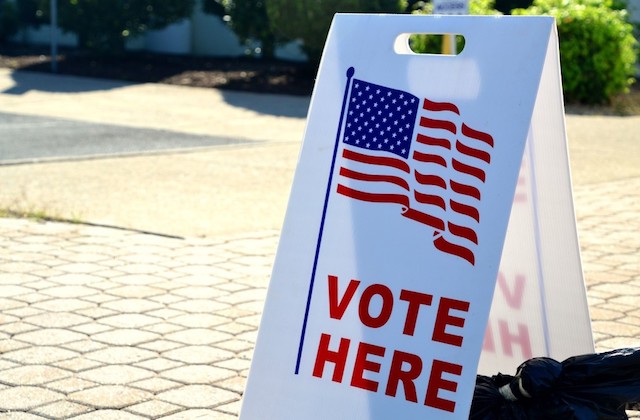People Of Color Are Still Being Locked Out of the Democratic Process

A new report from the U.S. Commission on Civil Rights says that, 53 years after the implementation of the Voting Rights Act (VRA), people of color are still being locked out of the democracy that America claims to value.
Released yesterday (September 12), “An Assessment of Minority Voting Rights Access in the United States” is part of the independent federal agency’s work to assess the level of access people of color have to voting and the Department of Justice’s (DOJ) enforcement of the Voting Rights Act. That work took on special significance following the Supreme Court’s decision in Shelby v. Holder. As The Atlantic reported this summer:
In that 2013 decision, the Supreme Court invalidated a decades-old “coverage formula” naming jurisdictions that had to pass federal scrutiny under the Voting Rights Act, referred to as “preclearance,” in order to pass any new elections or voting laws. Those jurisdictions were selected based on their having a history of discrimination in voting. The decision also left it to Congress to come up with new criteria for coverage, which hasn’t happened and probably won’t happen soon.
As the report shows, people of color are suffering for the lack of action in Congress. In a statement from the agency, chair Catherine E. Lhamon said:
Today’s report reflects the reality that citizens in the United States—across many states, not limited only to some parts of the country—continue to suffer significant, and profoundly unequal, limitations on their ability to vote. That stark reality denigrates our democracy and diminishes our ideals. This level of ongoing discrimination confirms what was true before 1965, when the Voting Rights Act became law, and has remained true since 1965: Americans need strong and effective federal protections to guarantee that ours is a real democracy.
The members of the commission found that many states, including those that were previously covered by the VRA, have enacted laws and polices that negatively impact people of color, such as strict voter ID laws, closed polling places, reductions to early voting, challenges to eligibility and outright purges of voting rolls. They also highlight elections that were eventually found to be intentionally discriminatory against communities of color, like in North Carolina. The commission also concluded that in light of continued discrimination in voting procedures nationwide, enforcing and litigating via Section 2 of the VRA is “an inadequate, costly and often slow method for protecting voting rights.”
The report concludes with recommendations for eliminating the disparities. The Commission specifically calls on Congress to:
Amend the VRA to restore and expand protections against discrimination, including federal pre-clearance.
When establishing the reach of an amended VRA pre-clearance coverage provision, include current evidence of, and historical and persisting patterns of, discrimination.
Consider the reality that infringement of voting rights may arise in jurisdictions that do not have extensive histories of discrimination, as minority populations shift.
Provide a streamlined remedy to review changes with known risks of discrimination, before they take effect—not after potentially tainted elections.
It calls on the DOJ to:
Pursue more VRA enforcement to address the aggressive efforts by state and local officials to limit the vote of citizens of color, citizens with disabilities and those with limited-English proficiency.
Read the full report here.
